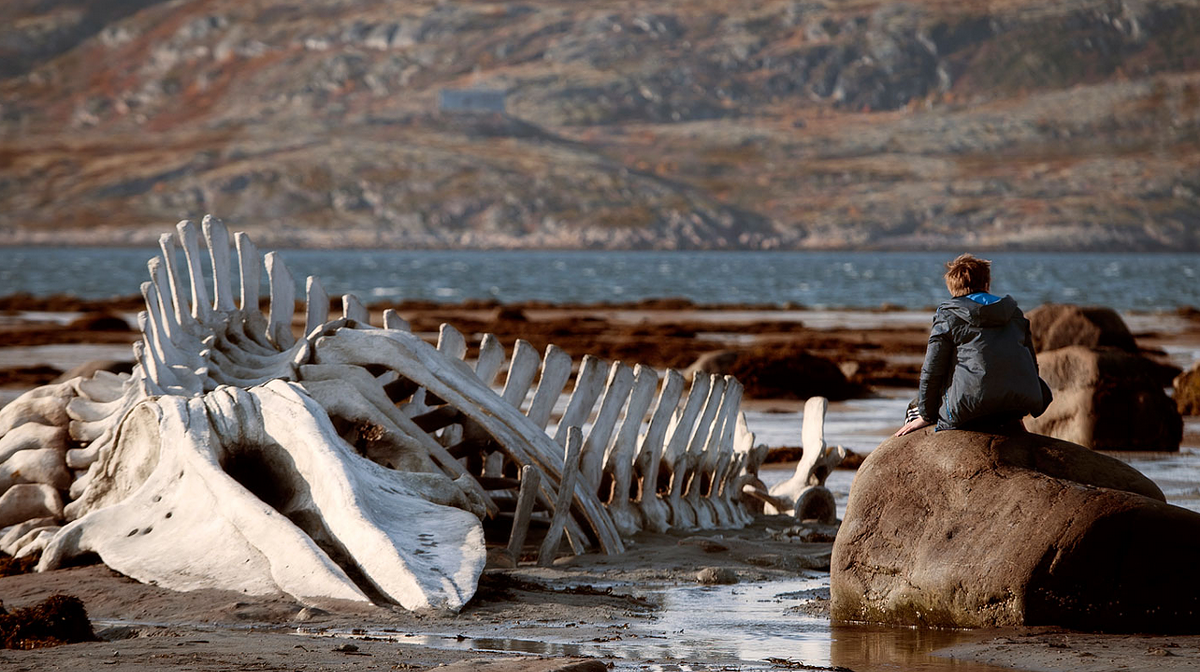Leviathan / B+
“Everything is everyone’s fault.”
Of the five foreign language films nominated for an Oscar this year, Leviathan is a rarity, a movie fueled by angry condemnation and sardonic contempt rather than poetic uplift or mournful reminiscence. You want to root for its success simply because it's a cinematic voice of rebellion, daring its host country, and the entire academy, to consider the soul-crushing corruption that infects Russian culture — and, frankly, most of humanity. Whether it's the church, local bureaucrats, Putin's government, or the drunken, selfish masses, director Andrey Zvyagintsev points his damning finger at everyone.
Which is to say, his movie didn't have a chance in hell of taking home the coveted statue.
Set in the breathtaking northwest coast of Russia, near the Finnish border, Leviathan follows the Job-like travails of Kolya (Aleksey Serebryakov), a hot-headed mechanic whose sprawling seaside home — built by ancestors generations ago — has become a target of acquisition for the town's tyrannical mayor, Vadim (Roman Madyanov), who sees it as the lynchpin in his crooked development schemes. With a belly full of pride (and lots of vodka), Kolya challenges the corrupt forces conspiring to steal his land, recruiting Dmitri, an old army buddy who has become a slick Moscow lawyer, to help. Unfortunately, the more Kolya resists, the harder and harsher Vadim becomes, sending both into a spiral of neurotically macho confrontations.
Further complicating things is that Kolya's young wife, Lilya (Elena Lyadova), has become attracted to Dmitri, and Roma (Sergey Pokhodaev), his disaffected teenage son from a previous marriage, seethes with resentment about his new family. With plenty of stupidity, betrayal, and petty cruelty to go around, Leviathan builds, as most Russian stories do, toward tragedy. But not without first indulging in some dark Chekhovian humor.
From the mayor's thuggish, bantering cronies to the hypocrisies of church leaders, Zvyagintsev paints a scathingly acerbic portrait of small-time corruption. There's a terrific scene early on when Dmitri confronts Vadim with proof of his crookedness. The imperious official squirms with comedic panic, as he's forced to confront the limits of his power. Yet it doesn't deter him from enacting escalating acts of violence and brutality.
Leviathan's pace is slow — a tad too slow — but Zvyagintsev squeezes out a queasy form of suspense from the soul-crushing obstacles he keeps hurling at his righteous protagonist. For more than two hours Kolya and those around him endure one misfortune after another, forcing you to wonder whether there will ever be any relief. Every time you think you know where the plot is heading, the characters blindside you with an impulsively bad choice. Even the lovely Lilya, who seems to notice so much of what the others miss, ends up undone. It's her fate that may ultimately disturb the most.
In contrast to the dramatic ugliness, Zvyagintsev offers up gorgeous wide-screen images of the Barents Sea and its stark, windswept coastline. Its rocky landscape is prehistoric in its grandeur, offering an epic juxtaposition to Philip Glass' spare, pulsing score. The bleached skeletal remains of a beached whale provide the perfect visual metaphor for the corruption that slowly consumes Kolya, and the rot that festers in the soul of his community.
Leviathan is outraged and cynical, the work of a talented filmmaker who is out to condemn a nation he clearly loves. There simply aren't enough filmmakers like this anymore, artists who know how to harness their rage into dramatically compelling, if emotionally exhausting, movies. Zvyagintsev's references may be uniquely Russian, but his exploration of how ordinary people get fucked by the powerful is universal.
Leviathan is rated R and 142 minutes.






